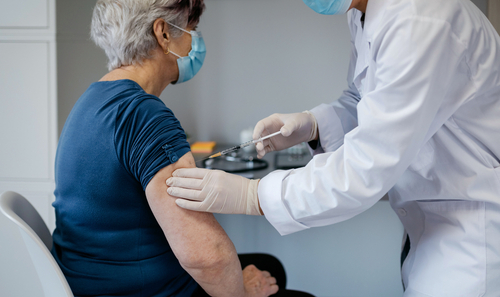Sharing our Better Care programme
26 November 2019 | Author: Caroline Cake
British industry transformed through the 1990s – flow and pull concepts introduced by the Toyota Production System, automation of plants, factories and design all improved consistency, timeliness and reduced waste.
Looking back, it happened remarkably quickly and pretty consistently across diverse sectors from chemical plants to electronics factories. From the early 2000s these approaches have been adopted within the NHS, reducing crowded A&Es by improving flow in emergency care pathways, building new ways of working to adapt to the changing needs of an aging population with complex and multiple conditions, addressing workforce and financial resource constraints. These concepts have also reduced harm to patients by reducing delays in pathways.
As with other sectors, large scale data provides an opportunity in healthcare – bringing benefits to the NHS and to enhance care for patients. To maximise this, it’s worth drawing on the lessons from making improvements happen in the NHS over the last two decades. The NHS has three distinctive strengths that are important to consider:
- Improvement in the NHS is done through people. Improvement in care is very doable, however, in a sector where 80% of the cost base is people, it is predominantly done through changes in behaviours and practices of the individual people providing the clinical care. Because it’s about people, improvements need to be based on the basic principles of behaviour change: fostering understanding, building role models, engendering skills, and reinforcing with systems and processes.
- Most people really believe in and care about the NHS. It generates an extraordinary sense of loyalty among staff, patients and the public. In over 15 years of working with staff across the NHS, I haven’t (yet) encountered a single person who didn’t care about it. This unusually shared value allows the creation of a sense of commitment to improvement which is very difficult to achieve in other sectors.
- There is exceptional talent within the NHS.The NHS mission attracts highly capable and resilient people who want to make a difference. This is demonstrated every day across the country as staff cope with ever increasing pressures.
With these distinctive characteristics in mind, when thinking through the role that Health Data Research UK can play in enabling Better Care through the use of data, we need to consider the role of data in behaviour change as it’s not the data per se, but how people are changing behaviours that matters.
We need to start by being clear on what we mean by data and what changes people can make as a result of it. There are many exabytes of healthcare data being generated about us each year – this is of a scale which is difficult to comprehend. There is data about visits we make to our GP, visits to hospital, scans we receive, blood tests and prescriptions; for some of us there is genetic information, and increasingly there is information from our phones and wearables. However, the immense richness of this data and opportunity to improve healthcare is often wasted. Two major missed opportunities exist: firstly the opportunity to safely and appropriately use this data to improve the general understanding of disease and treatment, to improve healthcare for everybody; secondly the opportunity to utilise that broader health information to improve the specific diagnosis and treatment for you as an individual. This gap between the data that exists and what it is actually used for presents opportunities for better care, but: the data needs to be in a format that can be used. We need to trust how it is being used, we need to be able to draw insights from this data and to be able to feed these insights into better health care decisions.
At Health Data Research UK, we are developing our learning about how to do this through our Better Care national priority. We are starting by focusing on the structures and environments around clinicians that encourage data to be used for better care. Through the Better Care programme, we are going to:
- Demonstrate that using data for better care matters. As one of Health Data Research UK’s national science priorities, we are investing in this – through catalyst projects and by establishing learning health systems, which we’ll be announcing next month. How we learn and improve health and care decisions using data is as important as what we learn. This is a call for action for leaders across the NHS to put your data to work, and to collaborate across the system to generate the data which improve your clinical decisions
- Grow and support people who are committed to doing. It takes courage to step outside of the ways in which things have been done for decades, and it takes time and resilience to try approaches and build communities around you in the frenetic world of the NHS. It requires people who can build coalitions across patient groups, clinicians, academia, regulators and industry to evolve new approaches using data. As part of the Better Care programme we will be creating a community of people with the skills, behaviours, motivation and support to make these changes happen in their care environment and at scale across the UK.
- Create a rhythm and structure which allows the UK to learn from examples, to constructively critically evaluate what’s happened, to celebrate the outcomes (successes and failures) and to keep learning. We will create supportive structures that enable people who want to enable better care through data to share what they have achieved and to learn from what others are doing.
We look forward to building a community around Better Care which generates energy, skills and outcomes that improve care for all of us by using data.
Please contact Caroline Cake, Simon Ball or Alastair Denniston if you want to get involved and look out for details of our Better Care catalyst projects and learning health systems next month.



